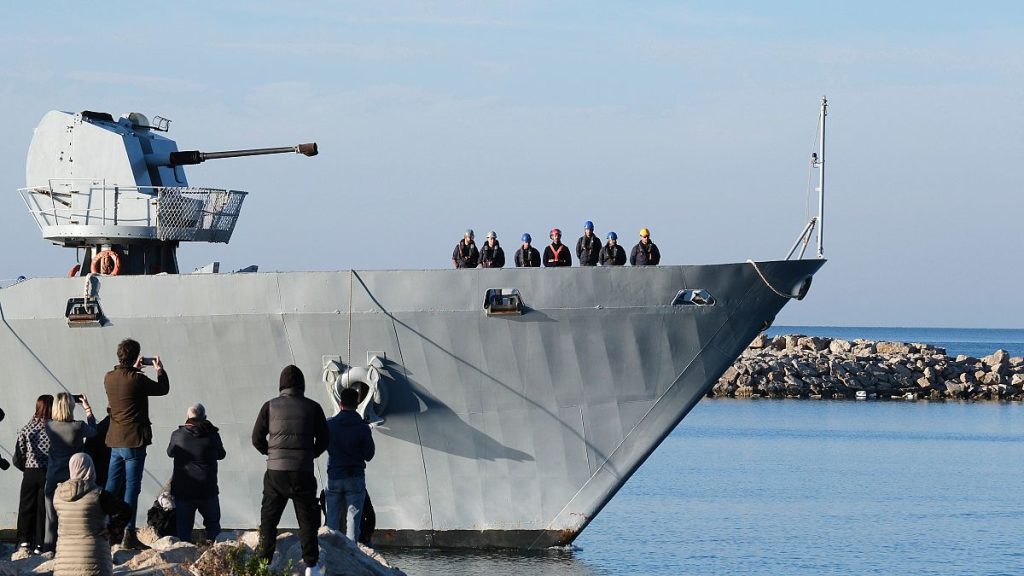The recent relocation of migrants from Italy to Albania has sparked controversy and legal battles in Rome. Initially, a group of 12 migrants from Bangladesh and Egypt were returned to Italy after a court ruled that their countries of origin were not safe enough for repatriation. Subsequently, an Italian navy ship brought eight more migrants to Albania, where they will undergo asylum processing before being transferred to a repatriation center in Gjader. This marks only the second transfer of migrants since two processing centers began operating in October.
The Italian navy ship had previously transferred 16 migrants from Bangladesh and Egypt to Albania, with four being returned to Italy on the same day due to being identified as minors or individuals with health issues. Three days later, the remaining 12 migrants were also brought back to Italy following a court ruling in Rome. This ruling, which deemed Bangladesh and Egypt as unsafe countries for repatriation, has created challenges for the repatriation program in Albania. Italian Premier Giorgia Meloni criticized the decision, stating that it would virtually bar all migrants from the program, making it unworkable.
The decrease in the number of migrants arriving in Italy along the central Mediterranean migration route has been significant, with a 60% decline in 2024 compared to the previous year. The Italian Interior Ministry reported that as of November 7, 57,767 migrants have arrived by sea in 2024, with the majority coming from countries such as Bangladesh, Syria, Tunisia, and Egypt. This decline in migration numbers may be attributed to various factors such as heightened border controls, increased crackdowns on migrant smuggling networks, and the impact of the COVID-19 pandemic on travel restrictions.
The challenges facing migrant repatriation programs highlight the complexities and legal uncertainties surrounding immigration policies in Europe. The issue of determining safe countries for repatriation is a contentious one, as it involves balancing human rights considerations with national security concerns. The legal battles in Rome and the criticism from Italian officials demonstrate the ongoing disagreements and debates within the European Union on how to effectively manage migration flows and asylum processes.
The role of international cooperation and bilateral agreements in managing migration flows is crucial, as seen in the collaboration between Italy and Albania in the repatriation of migrants. These partnerships help streamline the asylum processing and repatriation procedures, ensuring that migrants are treated fairly and in accordance with international legal standards. However, the recent legal rulings and challenges faced by the repatriation program underscore the need for clearer guidelines and mechanisms to address the complexities of asylum and immigration policies.
In conclusion, the relocation of migrants from Italy to Albania reflects the broader issues and debates surrounding migration management in Europe. The legal battles, court rulings, and criticisms from officials highlight the complexities and uncertainties of asylum processes and repatriation programs. As migration patterns continue to evolve, it will be essential for governments to work together to establish clearer guidelines and mechanisms for managing migration flows and ensuring the protection of migrants’ rights. International cooperation and dialogue are key to addressing the challenges posed by migration and finding sustainable solutions that balance humanitarian concerns with national security interests.


